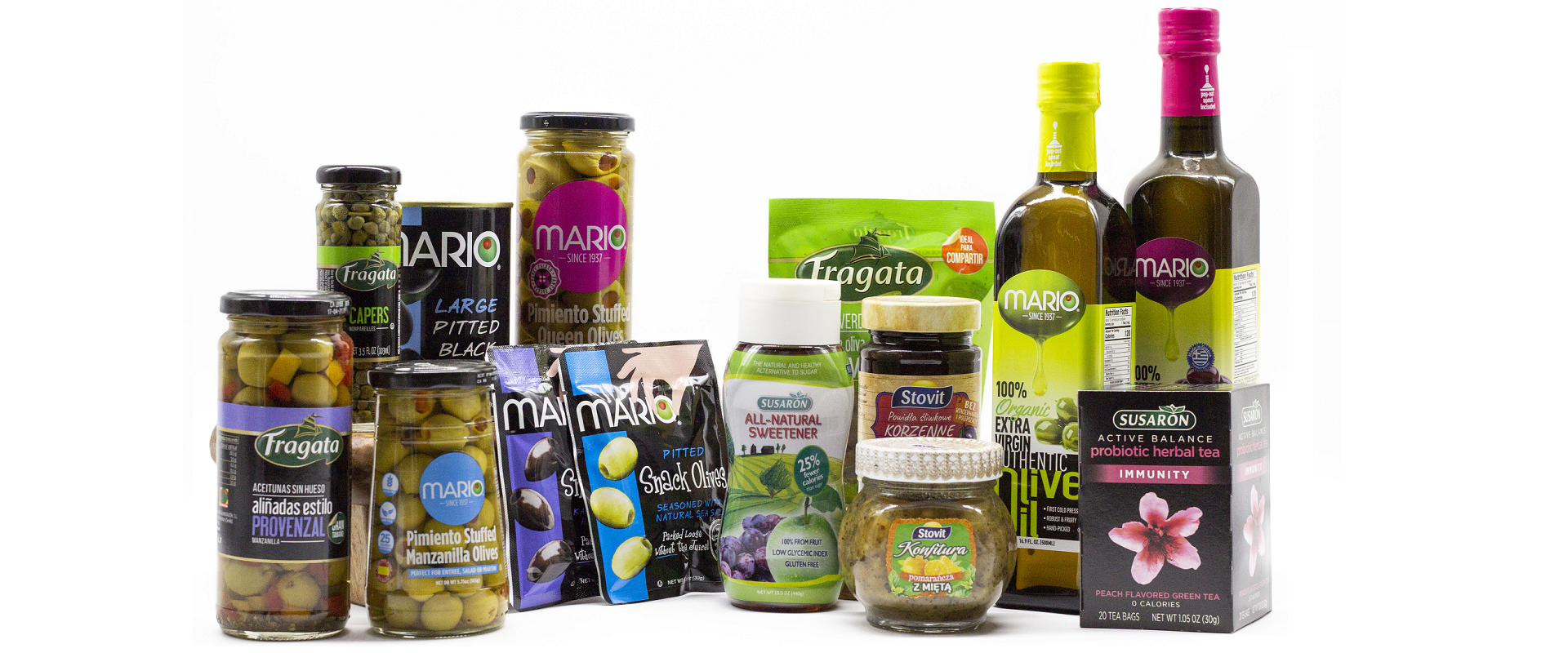
No, sulfites are not present in our Mario olive products although some of our Mario peppers do contain a small amount of sulfites.
Guar Gum is an extract from the guar bean. It is industry standard to be used to make the minced pimiento you find in some stuffed olives. Guar gum is perfectly safe to eat, and it is a thickener that’s widely and often used in foods you eat every day.
Yes, our products are both gluten free and Non GMO. Our Black Ripe Olives do contain Ferrous Gluconate, which is used to stabilize the color. Ferrous Gluconate comes from corn and is not related to gluten.
Pasteurization refers to the heating or cooking of products to a specified temperature during a specific time lapse to ensure that common pathogens do not grow inside jarred products like Mario Olives. Mario Ripe Olives undergo a sterilization process, which is slightly different than pasteurization. Sterilization also involves the heating or cooking of products to a specified temperature and time to prevent common pathogens. Pasteurization and sterilization applications are based on the products pH levels. Pasteurization typically occurs with products that have high acidity levels (low pH levels) while sterilization is most common with products with a neutral pH.
We recommend returning your Mario product to the retail store you purchased from along with your original receipt.


